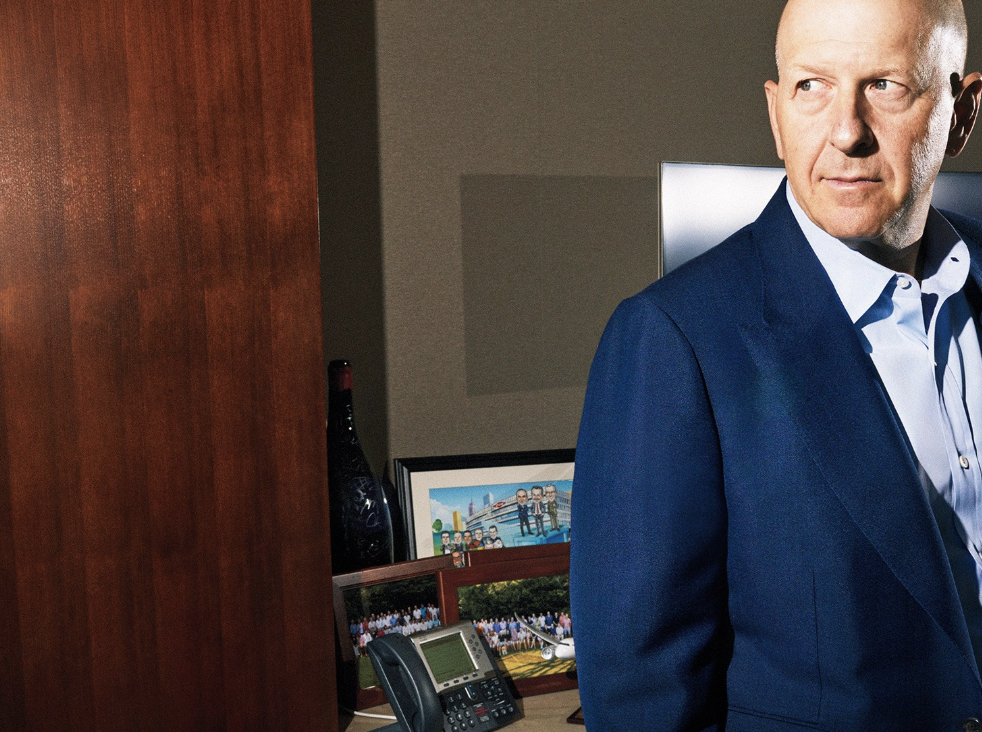
First, Solomon said that when we look back on the experiment with negative rates, he suspects it won't look like a success. Over time, more of the detrimental side effects will become apparent. Central bankers argue that loose monetary policy supports the economy, but low rates hurt savers and stress the financial system.
"When we look back on negative rates, I think when the book's written, it's not going to look like a great experiment," he said. "Growth in this part of the world has been lagging and negative rates have not allowed an acceleration of that growth in my opinion."
When Solomon looks at the economy, he sees that the factory sector isn't doing well. But the rest of the economy - the vast services sector which accounts for roughly 70% of the economy - is booming, and will likely continue. "There's no question, the industrial, the manufacturing part of the economy is slower, but when you look at the whole package, I think the chance of a recession in the near term is not significant."
Given the strength in the economy, arguing for more Fed rate cuts might be difficult, Solomon said. "When you look at the economic data, I'd be surprised if rates push lower from here based on the current set of economic data we have."
And the trade deal, one of the biggest sources of uncertainty, will soon be resolved, Solomon said (though that seems more like wishful thinking).
"If you're watching what's coming out of the administration in Washington, if you are listening what's coming out of China, I think it feels like both are incentivized to have some sort of a phase one deal, so there looks like some progress, some movement forward," Solomon said. "It fells like we're going to have something constructive happen."
The chances of a recession before the next election are "not significant", Solomon said. He put the odds at roughly 25%.
"I've said that I still think the chance of a U.S. recession between now and the election is small - in the distributions of outcomes, it's a smaller outcome - I said roughly 25%," Solomon said on BBG TV.
Early this year, Solomon would have put the odds of a recession before the election a little lower, at around 15%.
"Nine months ago I probably would have told you it was very small, kind of 15%," he said. "So I do think the uncertainty has increased a little bit some of the risk," but economic data and earnings momentum have held up well and American consumers are "still very healthy," he said.
Solomon added that he's optimistic about the prospects for a trade deal with China, arguing that both sides have something to gain.
"If you're watching what's coming out of the administration in Washington, if you are listening what's coming out of China, I think it feels like both are incentivized to have some sort of a phase one deal, so there looks like some progress, some movement forward," Solomon said. "It fells like we're going to have something constructive happen."
Goldman recently took a $267 million hit on its stakes in ride-hailing darling Uber, Avantor Inc. and Tradeweb Markets Inc. Also, its stake in WeWork declined by $80 million after the company shelved plans for an IPO. Offering some classic spin, Solomon said these losses were an important lesson: That markets are still capable of faithfully setting value, and that WeWork instilled a little more discipline in markets.
"It's important for people to grow, but there's got to be a clear and articulated path to profitability," Solomon said in a Bloomberg TV interview with Matt Miller in Berlin. "I think there's a little more market discipline coming into play."
Goldman Sachs, which relies on investments with its own money as a key profit driver, last quarter suffered the worst performance in more than three years from equity wagers in public and private companies. The slump in prized holdings added to a perception that the investments are subject to unpredictable swings even as the company works to provide more disclosure.
Solomon said that he doesn't think it's that hard to work out a valuation arrange that buyers and sellers can agree on.
"Different people will have different valuations and parameters," Solomon said. Still, "when you run an IPO process and you get an IPO process to the point where a valuation range is set and then you are actually selling securities to investors, I don't think it's that hard to get to a pretty narrow range for what the market expects and where buyers and sellers can meet."
Goldman has been tightening its upper ranks, reducing the number of highly-paid partners, as Solomon struggles to cut costs.
Of course, even if negative rates are a failed experiment, that hasn't stopped Japan and Europe from embracing them.
Commenti
Posta un commento